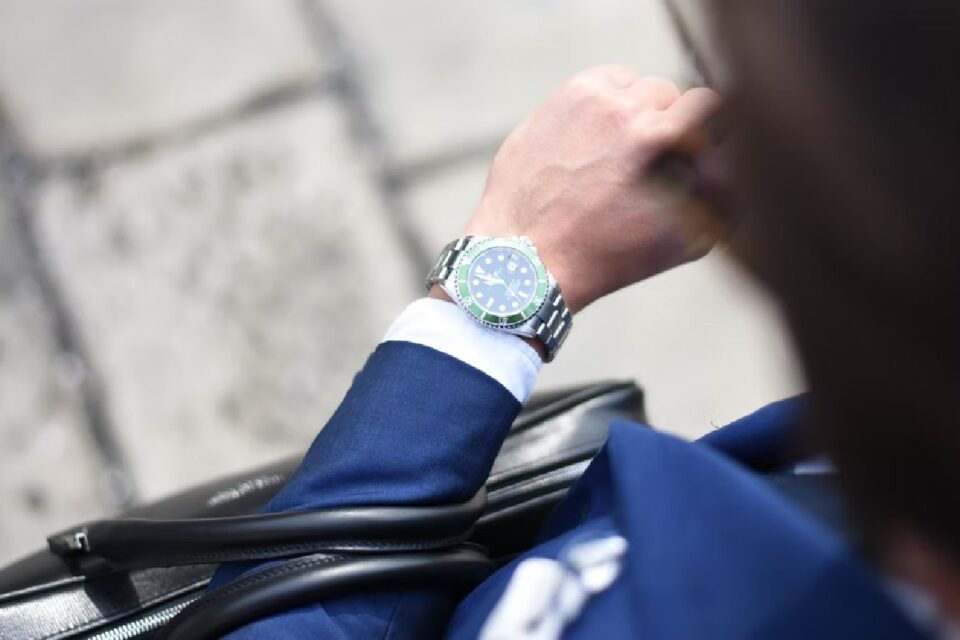Finding the perfect watch for you can be difficult. However, finding a men’s watch that is perfect for your wrist can be even more challenging. This is especially true considering the internet is flooded with various generic sizes, which makes it confusing. If you have a smaller wrist, you will need a smaller watch; if you have a larger wrist, you will need a larger one.
However, this does not make it that straightforward. With this guide we will provide all the information you need regarding the mens watches Ireland has to offer. We will cover everything you need to know about watch sizes and how you can choose the ideal one for you.
Table of Contents
Watch Size Measurement
The measurement of a men’s watch can be split into multiple areas, including watch case size, watch case thickness, band material, design, and other factors. Let’s take a look at each of them:
Watch Case Diameter
Watch cases are measured through a calliper, and the diameter is measured in millilitres. Additionally, a round one measured through the diameter is the most common shape of a watch case. Men’s watches usually range in diameter from 38mm to 46mm. If the diameter is bigger than 46mm, it will be too large, noticeable, and flashy.
Watch Case Thickness
The watch case thickness is directly correlated with the case diameter. The larger the diameter, the thicker the case would be, and vice versa. Many people believe that a thinner case reflects higher quality, but that is just a misconception. This is entirely false when it comes to electric watches.
You should simply understand that the larger the diameter, the thicker the case would be. For watches that range in diameter between 36mm to 42mm, the thickness would be around 7mm. When you opt for a watch bigger than 42mm, the thickness would likely be 9mm.
Watch Bandwidth
Some people might be shopping for watch cases and bandwidth separately. If that is your case, you must pay attention to the bandwidth size. Typically, this is half the size of the watch case diameter. For example, if you have a diameter of 42mm, the bandwidth would be 21mm.
You should choose the right bandwidth based on your wrist size. People with smaller wrists tend to opt for smaller watch band width sizes. Contrastingly, people with larger wrists would prefer a wider bandwidth.
Watch Design and Details
First of all, you have to consider the strap design. Typically, they are either leather or metal. Most popular men’s watches consist of metal bands because they give an appearance of a larger watch because of the nature and properties of the material.
Besides this, you should pay attention to the components of the watch. These include the lug size, hours, numbers, changer, and pusher. These should all work perfectly, and in coordination, so the entire watch flows well. If they aren’t, they will appear to be disproportionate. For example, if you have a small watch but the numbers are large, it will be out of proportion and won’t look attractive.
Similarly, if you have a large watch but the hands-on it is too thin, and the numbers are too small, you will always think something is off with your watch.
How Do I Find the Right Watch Size?
First, you should measure your wrist and compare it to the watch case size. To measure your wrist, wrap a measuring tape around it. If your circumference falls between six to seven inches, you have a medium size wrist, and a watch case of 38mm, 42mm, and 40mm would be ideal for you.
You have a larger wrist if your size falls between seven and eight inches. Hence, a watch case of 44mm and 46mm would be great for you.
We hope that our detailed guide to watch sizes was worth your while. There are plenty of choices when it comes to men’s watches, but it is essential that you find one that exactly fits your size and specifications.
Also Read:
8 Colorful Outfits Moms Will Love
How To Use Zero-party Data To Grow Your Beauty Business


